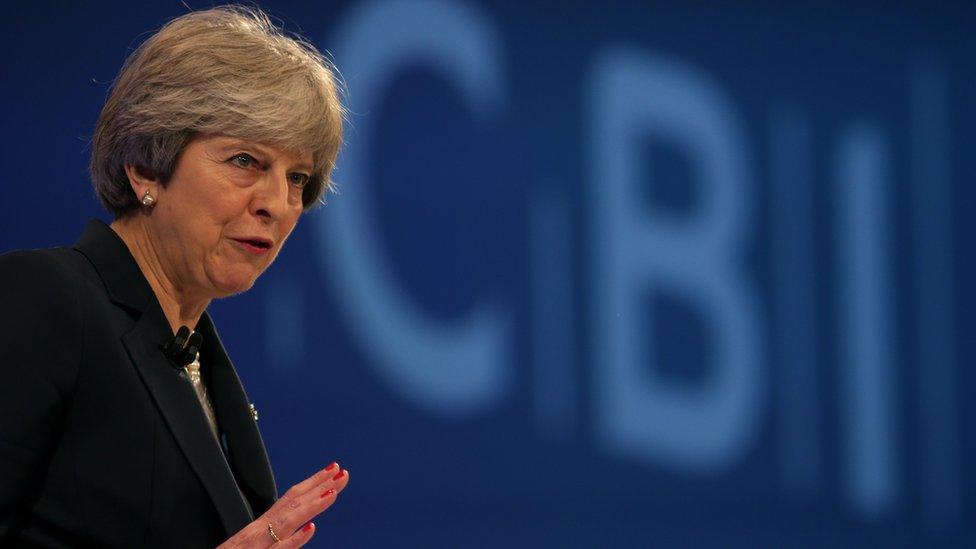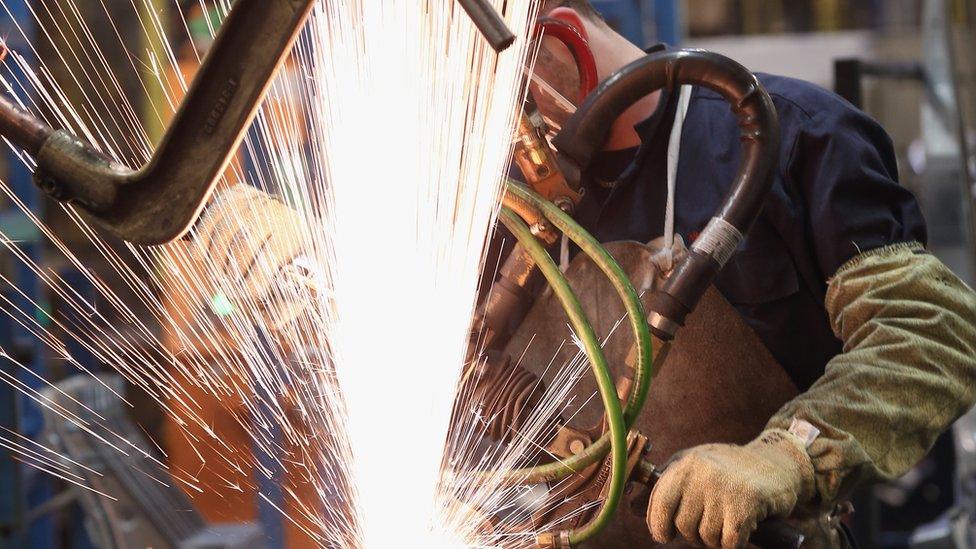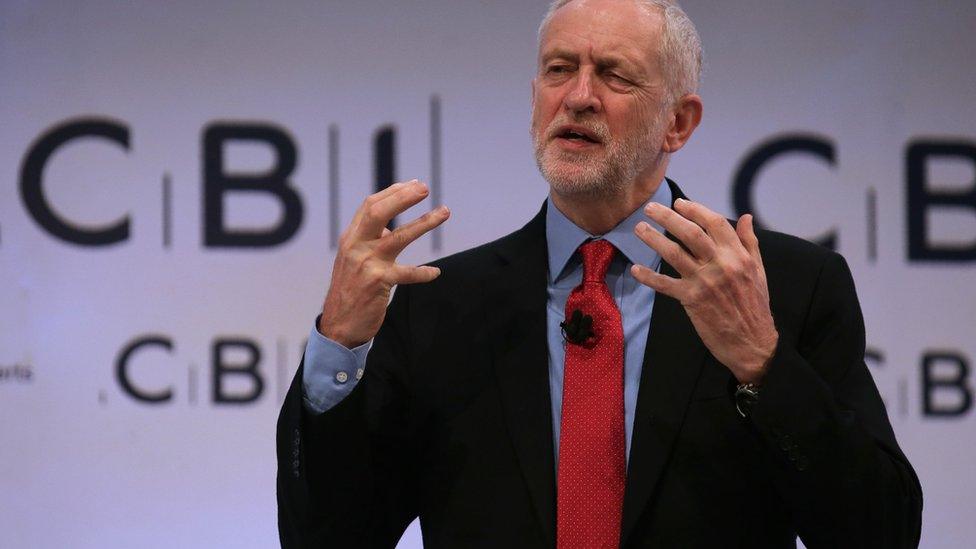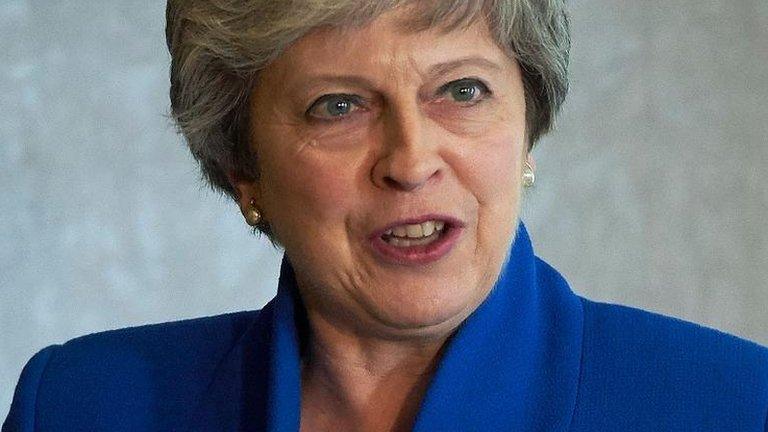Prime Minister calls on UK firms to pump more into R&D
- Published
- comments

Prime Minister Theresa May has called on UK companies to invest more in research and development.
At the CBI's conference she said the "economy fit for the future" would be "driven by science and innovation".
But, she said, while the government was increasing support for R&D to "record levels", UK firms were not keeping pace with rivals in other countries.
Later, Jeremy Corbyn reminded delegates that Labour had said it would increase R&D spending to 3% of GDP by 2030.
Improving standards
At last year's CBI conference, Mrs May said she had committed to increasing public spending on R&D by £2bn a year by 2021.
"So we are playing our part by increasing public sector support for R&D to record levels."
However, she added: "Today, for every £1 of government support for R&D, British businesses invest around £1.70, but in America business invest around £2.70 and German businesses invest nearly £2.40.
"So I want you to work with us to drive up business investment to help develop the next generation of technologies here in the UK so that we can deliver more good jobs across the country and improve living standards for everyone."
Mr Corbyn told bosses that as part of Labour's industrial strategy, which it unveiled earlier this year, it would "invest £1.3bn on research and development in our first two years in government, to galvanise private investment".
But to pay for this and other measures, he said the party would "raise some taxes to pay for it... to ensure that our spending plans fit within the constraints of our fiscal credibility rule".
However, he added, the party would be "clear and open" about its tax plans. "We won't do it by stealth."

The government's industrial strategy will be published this month
Mrs May told the conference the government would not protect the UK economy from market forces post-Brexit.
She also said the government had to "make strategic decisions" about how best to support different sectors of the economy after Brexit.
"We believe in the free market and won't attempt to shield the economy from market forces," she said.
The speech came ahead of the government industrial strategy report.
The white paper, due to be published later this month, will set out ways in which the government can provide support to businesses by addressing regulatory barriers, agreeing trade deals and helping to establish institutions that encourage innovation and skills development.
It will build on January's green paper which pledged to invest in science, research and innovation and upgrade infrastructure.
The plan is aimed at boosting the post-Brexit UK economy.
Mrs May told the conference in London that the government would avoid the "failed state interventionism of the 1970s".
The prime minister also tried to reassure firms about the opportunities following the UK's exit from the EU, telling them the next decade would mark "a new chapter in the story of the British economy".
"There are huge opportunities ahead," she said.
And she also reiterated her support for a post-Brexit transitional period to prevent firms facing "a cliff-edge" scenario where the UK's EU exit leads to an abrupt change in rules.
"I have made clear that a strictly time-limited implementation period will be crucial to our future success," the prime minister said.
Mrs May added that she wants to agree "the detailed arrangements for this period as early as possible".

In his speech, Mr Corbyn said even though Brexit negotiations were underway "many of you feel no closer to having clarity about the direction of travel they desperately need".
He added that "watching chaos and confusion grow at the heart of government and Brexit negotiations stuck in stalemate, many of you probably feel the situation is more uncertain and precarious than ever.
"We know as you do that firms are deciding now whether to continue to invest in the UK, and that guarantees in key areas are needed now to stop firms from cutting the UK out of their business models," he added.
The Labour Party and business had "common ground on the need for transitional arrangements to be agreed immediately so that business know they won't face a cliff-edge Brexit when the two year negotiating period is up".
They also had "common ground on the threat of 'no deal' which... is potentially a nightmare scenario", added Mr Corbyn.
"It is crucial that the final deal maintains the benefits of the common market and the customs union."
- Published28 September 2017

- Published5 October 2017